Dr Em exposes the similarities and connections between the portrayal of women in Kpop and transgenderism. We have rehosted Dr Em after her ban from Medium.
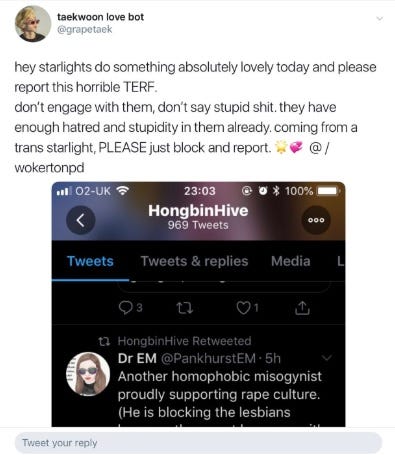
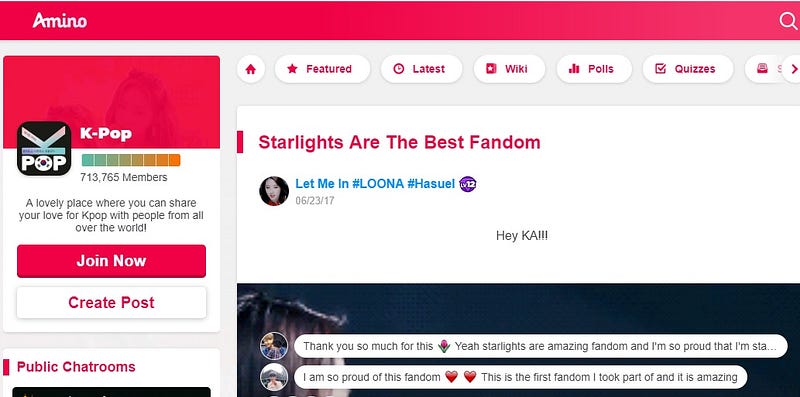
The man attempting to start a mass reporting campaign against me because I think lesbians should not be compelled to suck penis is a fan of Kpop. This comes as no surprise to me. This and the recent threats of violence, dehumanisation and objectification of women from another proponent of transgenderism draws out a coincidence — the overlap between those who espouse transgenderism and fans of the sexist genre Kpop.
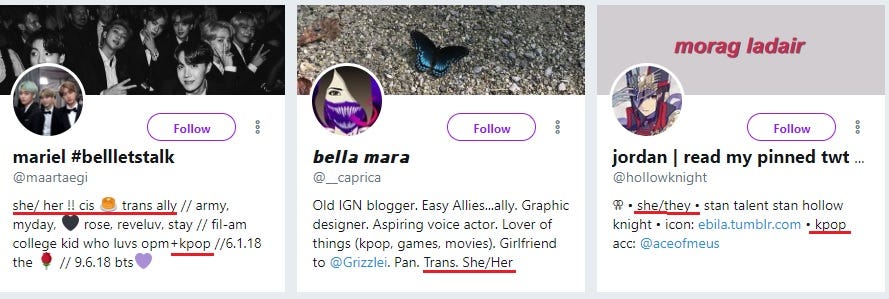
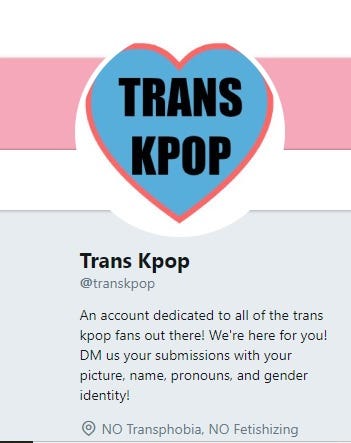
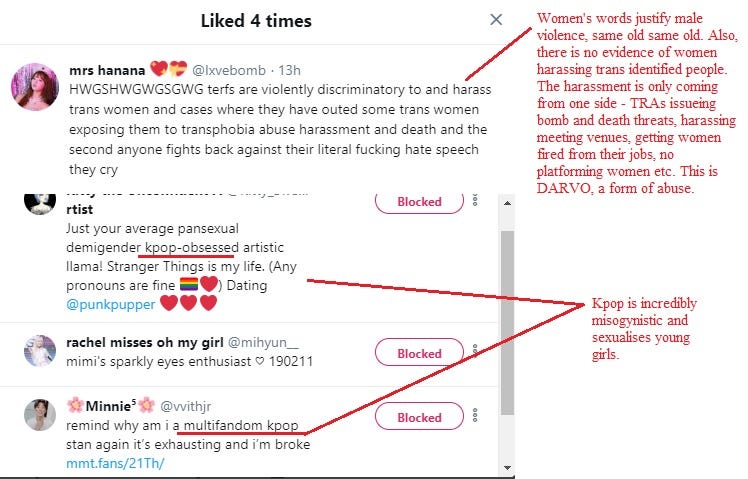
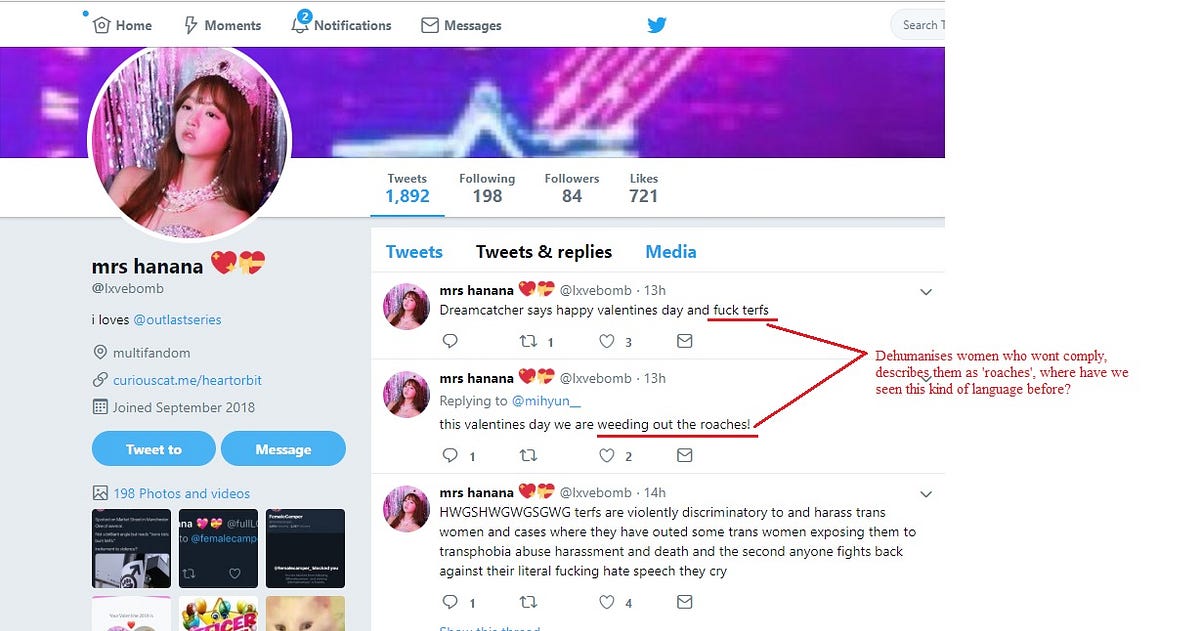
Kpop is an export from South Korea and is a multi-million dollar industry. It is comprised of large single sex bands, with some graduating to become individual ‘idols’, and combines sugary tunes with misogyny. It has certainly come under heavy criticism in recent years. From performers being prostituted to sponsors, prostitution rings, paedophilia, slave contracts and rigidly enforcing gender stereotypes, the world of Kpop is not as wholesome as it first appears.
Similar to how transgenderism uses children to prop up adult identities and ideology, as existing for male use, Kpop endorses the notion that some children were born to serve in the form of entertainment. For example, the Kpop artists, without pay, ‘have to spend about ten years training in K-pop “boot camps” before they’re allowed to record anything — and it usually starts when they’re ten to 13 years old’.1 That is child exploitation and slavery. The denial of childhood and reconfiguration of children as mini-adults is a common theme between Kpop and transgenderism. It shows how a particular view of humanity operates. Once one has graduated from the camps if one is female one will most likely be pimped out. ‘In 2009, a Korean actress named Jang Ja-yeon was found dead in her apartment. She’d committed suicide, unable to go on, as she explained in her note, with being pimped out to every executive she met’.2 Much has been written about the sex-slavery and pimping in Kpop, it is well known.3 The prostituting of Kpop females by their managers expresses the idea that these women exist wholly for men’s sexual gratification. This is another concept we see transgenderism pushing, for example the idea that lesbians must except males into their sexuality. Kpop is part of the sex industry and transgenderism has spread with the support of the sex industry lobby. This is why proponents often attack both ‘TERFs’ and ‘Swerfs’. As always across regimes of male supremacy, the girls are presented as choosing and desiring this hyper-sexualisation and pimping. Nevertheless, ‘whenever claims of female empowerment or sexual expression are made of girl groups, just a little investigation reveals the conspicuous absence of the voices of the girls themselves’.4 Sometimes this lack of female consent is fetishized, such as in Tzuyu’s sexy elevator commercial which is filmed to look like a hidden camera movie. In this video the teenager (about 15) was dressed in a fairly revealing, tight outfit while dancing sexily in an elevator. Critics have described how ‘it looks like she’s being essentially peeked at because the camera is made to look like it’s the one in the corner of the elevator and she otherwise thinks she’s alone’.5 The reviewers at ‘Eat my Kimchi’, a different Kpop fan site, outline the standard fare of Kpop videos and the objectification of the female performers. They claim that Rainbow Blaxx “Cha Cha” missed an opportunity to break the mold regarding Kpop videos, that ‘This could have been a great video! A commentary on women in the Kpop industry! The unhealthy ultra-strict diets they need to go on! The focus on measurements of women in the industry as opposed to just talent! The male gaze and voyeurism!’.6 The women in Kpop, like in transgenderism, like in the sex industry, are products for male consumption.
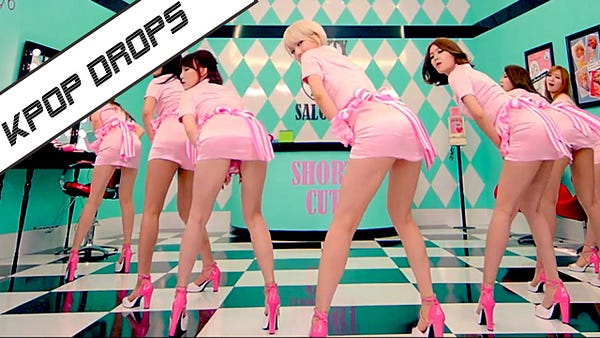



Kpop has come under heavy criticism for promoting paedophilia, a critique which is also levelled at transgenderism. Debate has raged in South Korea however, one reporter claimed ‘Raise concerns about a revealing photo shoot of a young female performer for instance, and… you’ll be called a prude for not recognizing her bold assertion of her blossoming sexuality’.7 The idea of a child’s right to be sexually attractive to adult men is being pushed. It has been configured as an expression of the child’s true self.
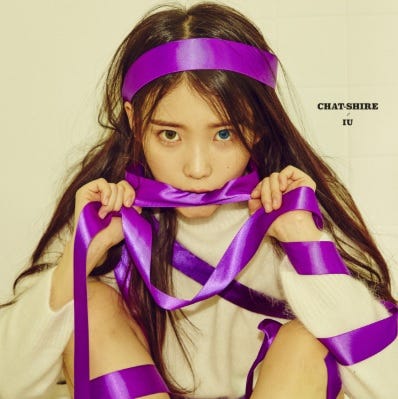
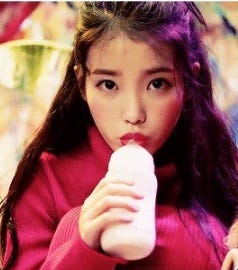

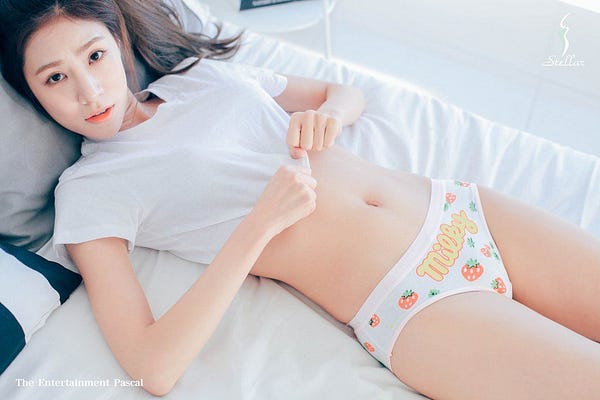
Then there are the Kpop stars over 18 who are marketed using the Lolita concept.

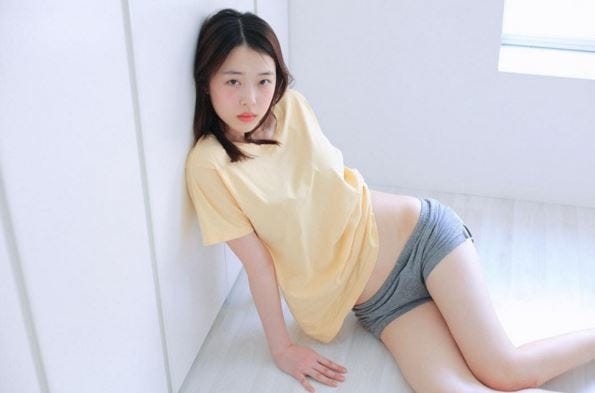

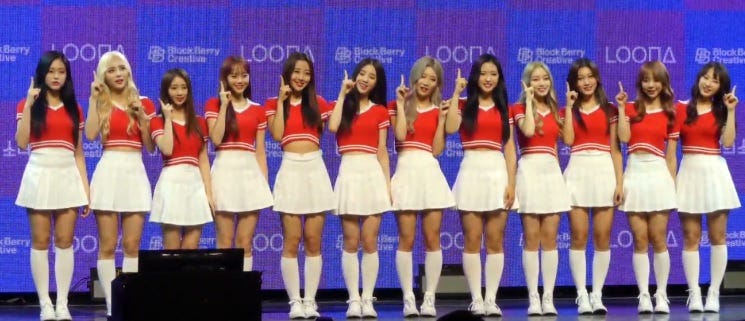
There is a constant push at the Overton Window and what can be tolerated. For example, the Kpop industry has had to apologise for sexualising children’s book characters. The Korean publisher issued a statement saying that “We regret the way the five-year-old character is portrayed as a sexual object.”8 ‘A performance by Bonusbaby, a South Korean girl group, last year had members wear pink bibs while dancing to a song entitled “If I Become An Adult.” Jeon So-mi, from I.O.I., another prominent all-female K-pop group, revealed during a 2016 interview that the stage outfits they wore for some of their performances were in fact children’s clothes’.9 Korean feminists are constantly criticising the normalisation of paedophilia through Kpop. Why are people who argue that children are old enough to make life changing decisions regarding their genitals (transgenderists) such fans of this genre?
Alongside this, Kpop’s double standards and misogyny has been catching attention. In September 2013, Goo Hara of KARA went on the variety show “Radio Star,” where the male hosts relentlessly badgered her about rumors that she was in a relationship. At one point, host Kyuhyun threatened to ruin her, and she broke down crying’.10 With regards to the female performers and their lives, ‘it’s not etiquette that’s required so much as absolute submissiveness to male authority’.11 This is the dream and utopia they sell. Is it any surprise that proponents of one ideology that demands female submission on threat of male violence would enjoy an industry which sells this idea of female submission as glossy entertainment? It is a world where females exist as male play things. For example, Mike Kim described his experience of ‘a 44 year old man [who] was sexually assaulting a young woman in broad daylight, physically impeding on her, and verbally masturbating about his infatuation with her ‘booty booty’ and yet, not a single soul in the gym stopped him. This wasn’t a nightmare. Welcome to the world of KPOP’.12 The man who was sexually assaulting the young women is celebrated as an icon, his behaviour adds to his image. The younger male idols are no less misogynistic. ‘In a interview Teen Top members were asked where they want to be in 10 years, and C.A.P said that:
“When I’m thirty I want to become a father. I will raise my children in a cool way. I would give my son anything he wants and I will take care of him so he can grow up. As for my daughter, it is a woman’s job to stay at home. If she needed to be I would hit her and keep her locked up at home.”13
Kpop promotes strict gender roles. Recent research ‘suggest[s] that a higher level of K-pop consumption is related to less egalitarian gender attitudes’.14 Is it any wonder that the supporters of the most anti-feminist ideology to emerge — transgenderism — are fans of the genre?
It is safe to say Kpop doesn’t like feminism or critics of gender roles. Have a look at the comments about Han seo-hee, the slur ‘Terf’ is once again used to dehumanise, this is global.

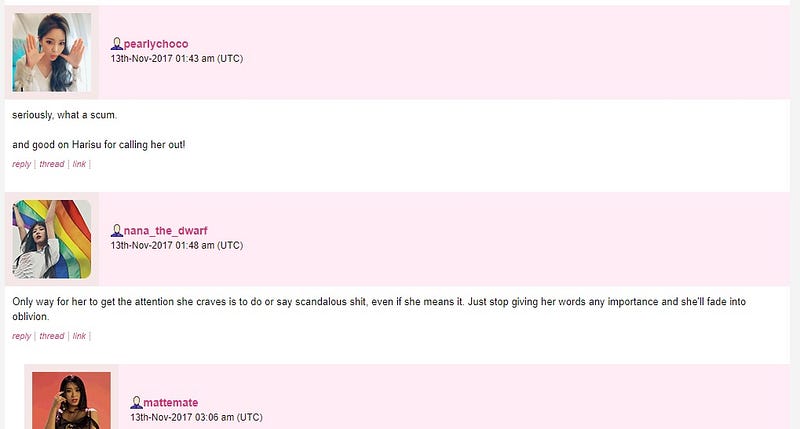
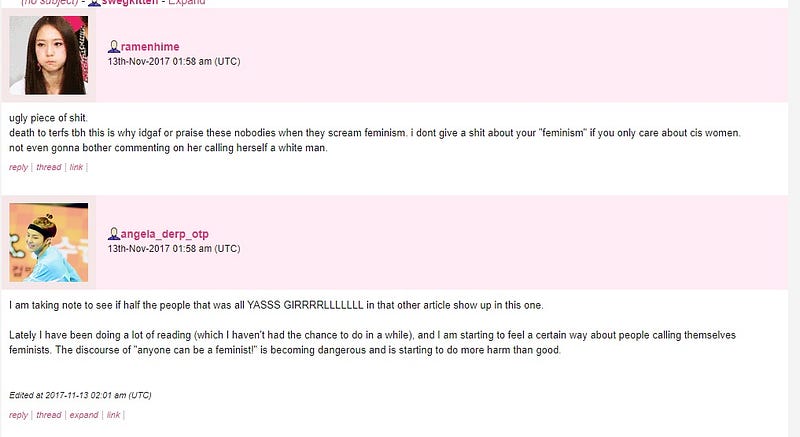
‘As an industry, K-pop regularly faces issues regarding its characterization, and fetishism, of women. But the latest trend is an unsettling one, as female Korean pop stars are being called out for even the most subtly feminist actions’.15 Reading a feminist text led to one female Kpop idol having her image burned all over the country.16 Son Na-eun, a member of the popular K-pop group Apink, was subject to online vitriol from male fans ‘after being seen using a phone case that said ‘Girls can do anything’ in capital letters’.17 Similarly, any suggestion in the U.K. that girls can like and do anything and that this does not indicate that they were born in the wrong body is met with threats and insults from those espousing transgenderism. Feminists are increasingly vilified and targeted.
When men try to freeze my voice out or silence me I often question, what is it you don’t want me to see, criticise and expose? When men make a decision to ignore what I’m saying, to push my analysis away and refuse to engage, what are they scared of? Decent men should have nothing to hide from myself and other feminists.
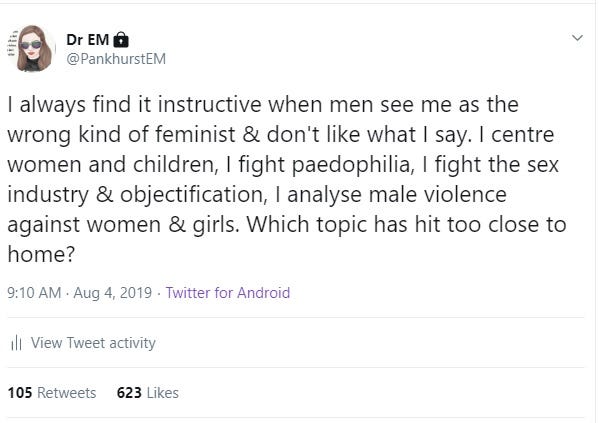
- https://listverse.com/2017/07/11/10-dark-secrets-from-the-surprisingly-twisted-world-of-k-pop/
- https://listverse.com/2017/07/11/10-dark-secrets-from-the-surprisingly-twisted-world-of-k-pop/
- https://hornet.com/stories/k-pop-dark-side-nightmare/
- http://www.koreaherald.com/view.php?ud=20110720000617
- https://www.allkpop.com/article/2016/05/times-when-female-idols-were-sexualized-too-young
- http://www.eatyourkimchi.com/un-sausagefest-edition/
- http://www.koreaherald.com/view.php?ud=20110720000617
- https://www.theguardian.com/books/2015/nov/09/k-pop-star-iu-song-sexualising-jose-mauro-de-vasconcelos-my-sweet-orange-tree
- https://www.koreaexpose.com/korean-feminists-argue-kpop-stars-bts-are-misogynists/
- https://www.pri.org/stories/2016-04-25/k-pop-s-gross-double-standard-women
- https://www.pri.org/stories/2016-04-25/k-pop-s-gross-double-standard-women
- https://medium.com/@mikekimsf/kpop-a-misogynists-playground-6520c190fe30
- https://weheartit.com/articles/319013410-sexism-and-misogyny-in-k-pop
- https://hd-ca.org/wp-content/plugins/view-conftools-export/conf-papers-2016/does-k-pop-reinforce-gender-inequality-evidence-from-a-new-asian-data-set.pdf
- https://www.billboard.com/articles/columns/k-town/8257777/female-k-pop-stars-face-criticism-feminist-behavior
- https://www.billboard.com/articles/columns/k-town/8257777/female-k-pop-stars-face-criticism-feminist-behavior
- http://koreabizwire.com/growing-anti-feminism-sentiment-in-south-korea/115307







